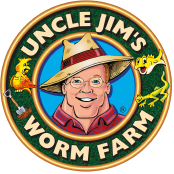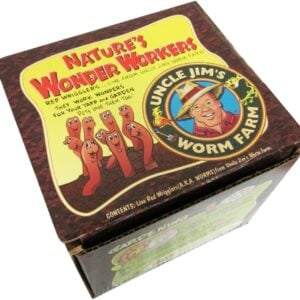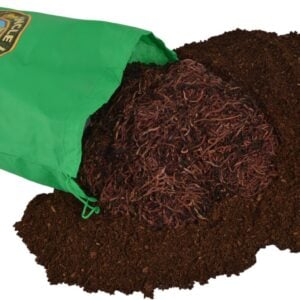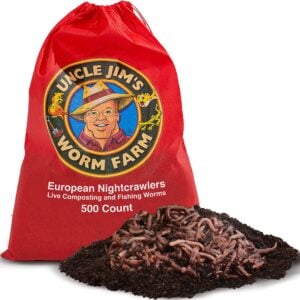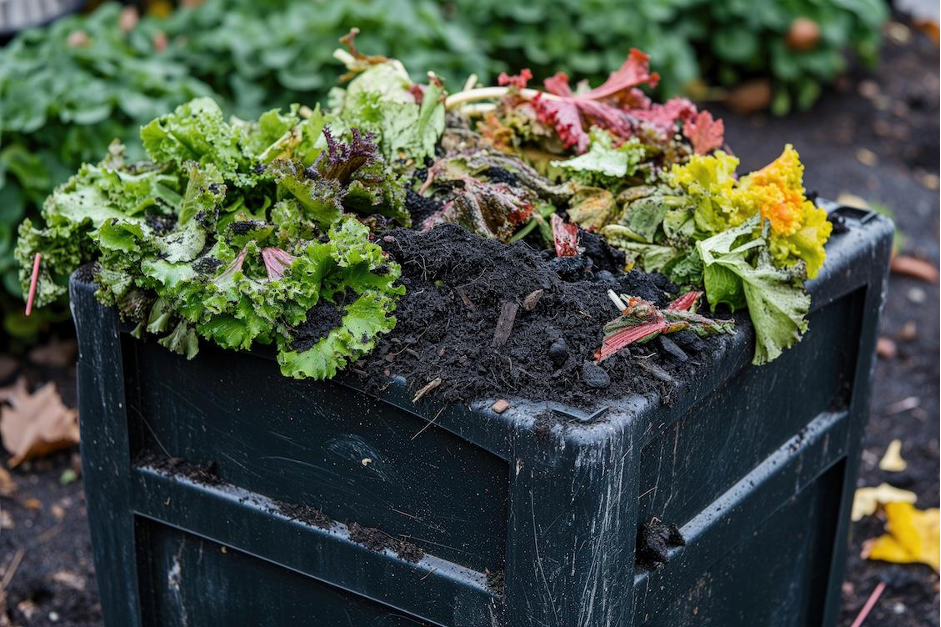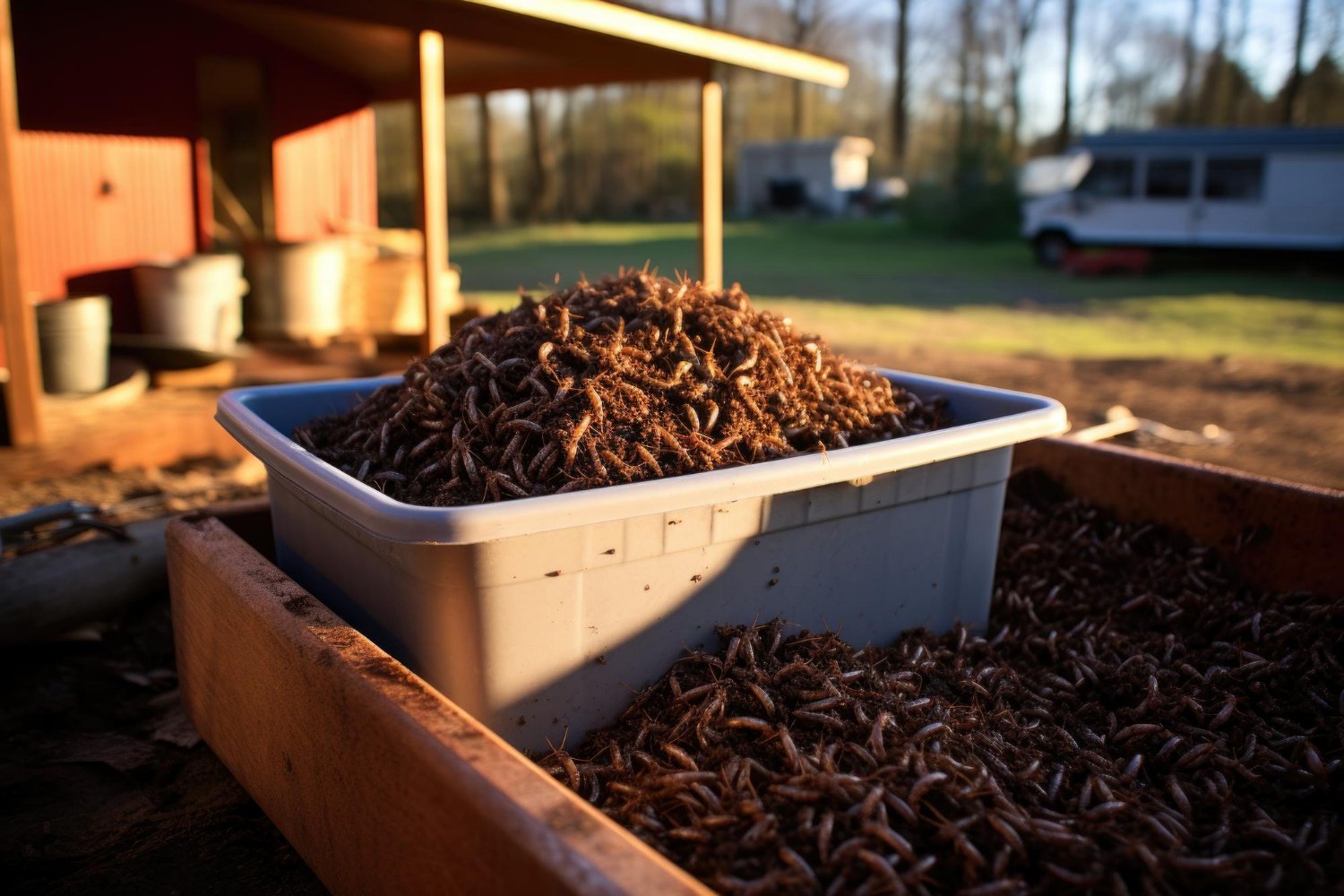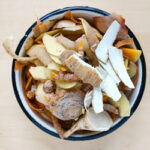 Composting is composting, right? Wrong! Let’s talk about three different types of composting: hot, cold, and vermicomposting. All these styles of composting break down organic matter. They all result in finished compost to use in your garden soil. However, they each require a different amount of labor from you. And they each take a different amount of time to start producing finished compost.
Composting is composting, right? Wrong! Let’s talk about three different types of composting: hot, cold, and vermicomposting. All these styles of composting break down organic matter. They all result in finished compost to use in your garden soil. However, they each require a different amount of labor from you. And they each take a different amount of time to start producing finished compost.
Different Composting Processes
Vermicomposting requires using worms to break down the compost quickly. You prepare a composting bin with bedding for the worms (“brown” material) and add organic food (“green” material). The best worms for composting are Red Worms, which you can order online and have mailed to your house or post office. European Nightcrawlers are also great for composting, releasing into the garden, and for fishing. The worms eat the food scraps and organic matter. Their tiny digestive tracts break down the food and excrete humus (worm poop). The humus is highly concentrated finished compost, filled with soil-friendly bacteria. Also called “black gold,” worm poop is prized by gardeners and farmers as a valuable soil amendment, making plants grow strong. Vermicomposting can produce usable compost in just a few months. It can be done indoors or outdoors and has virtually no odor.
Hot composting relies on high temperatures and heavy labor. The right mix of “brown” and “green” materials is concentrated into a small batch. With frequent turning and maintenance, hot composting produces usable compost in several weeks. Add on time if you want to cure the compost. Most weed seeds and worms cannot survive these temperatures. Hot composting uses bacteria and other microbes to break down the organic material. It must be done outdoors or in controlled industrial conditions.
Cold composting is the least labor-intensive. It also takes the longest. Instead of you or the worms doing the work, nature takes its course. Just pitch in brown and green organic materials. Turning the pile is entirely optional. The material might stink to high heaven. Finish compost should show up at the bottom of the heap after 6 to 12 months. It should be done outdoors.
Feeding Versus Tossing
A big difference between composting and vermicomposting is how you add organic material.
With hot and cold composting, you can toss in a wide variety of organic material. The volume of material is not so crucial. You can add a handful or a wheel barrelful. You need to mind the proportion of green material to brown. Otherwise, the amount does not really matter. The size of the scraps is not critical, either. Smaller scraps will break down faster. If you are in no hurry, any size of organic material will do.
With vermicomposting, you are feeding the worms a couple of times a week. Just like us, worms can only eat so much at a time. If the worms cannot keep up with the feedings, the worm bin might become smelly, too wet, and inhospitable to worm life. You will need a plan for storing or discarding scraps if you have too many. Worms can break down small pieces of food faster. Therefore, if you cut the organic material into smaller pieces, they will eat faster. Also, worms are fussier about the types of foods. They do not like too many acidic foods, such as tomatoes, citrus fruits, and pineapple. Dressing should be rinsed off wasted salad. Food should be buried just below the surface. Learn more about feeding worms.
Get Started Composting
Before starting a composting project, do a little research. A farmer may opt for cold composting for yard waste and excess vegetation. A farmer or gardener with plenty of outdoor space might go for hot composting or vermicomposting. The typical householder may prefer the flexibility of composting with worms. Vermicomposting can be done indoors or outdoors, and it takes up very little space.
If you decide to try vermicomposting, just browse Uncle Jim’s Worm Farm’s website. We offer a wealth of knowledge on composting with worms. Our Red Worms and European Night Crawlers (Super Reds) are grown in the USA and ready-to-ship. We also offer special vermicomposting bins with trays, making it easy to harvest the finished fertilizer. Additionally, we have composting & gardening supplies and mealworms. Got questions? Connect with us on social media or contact us.
